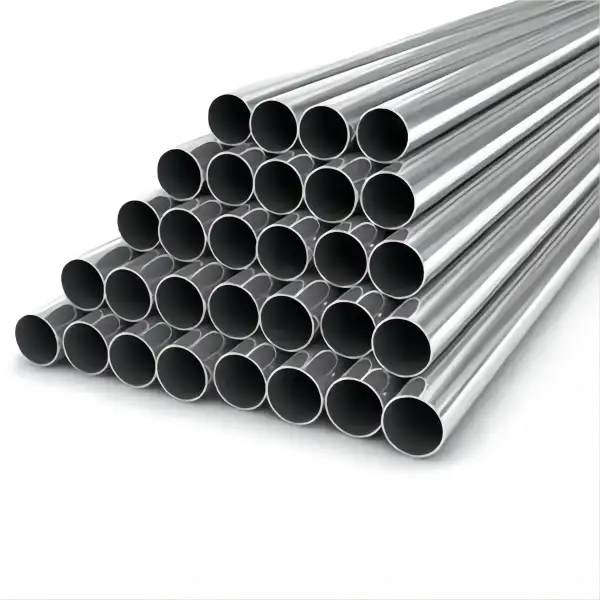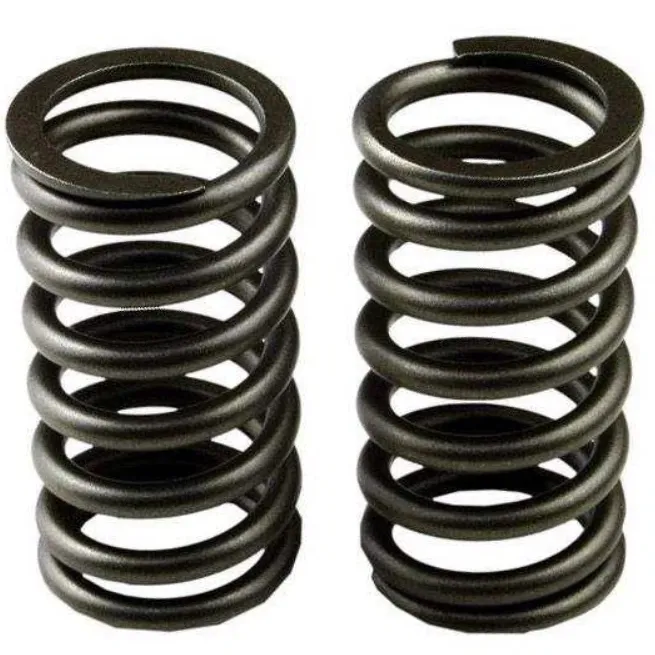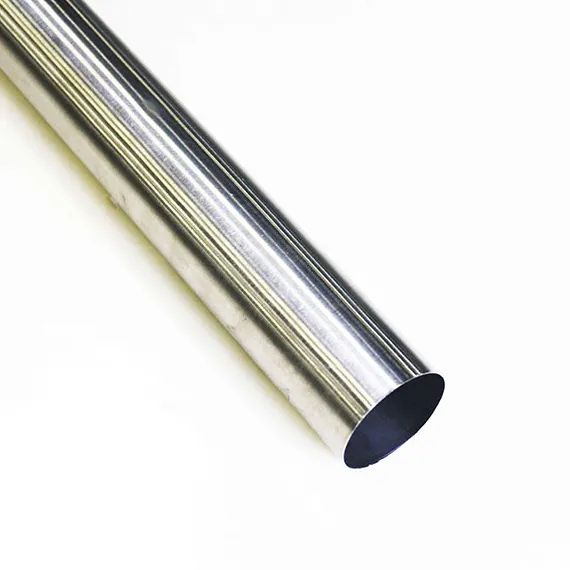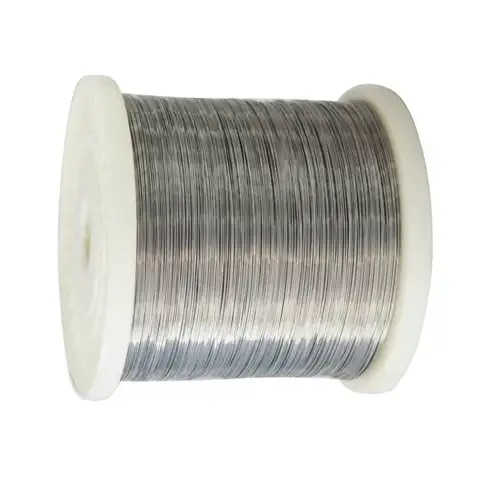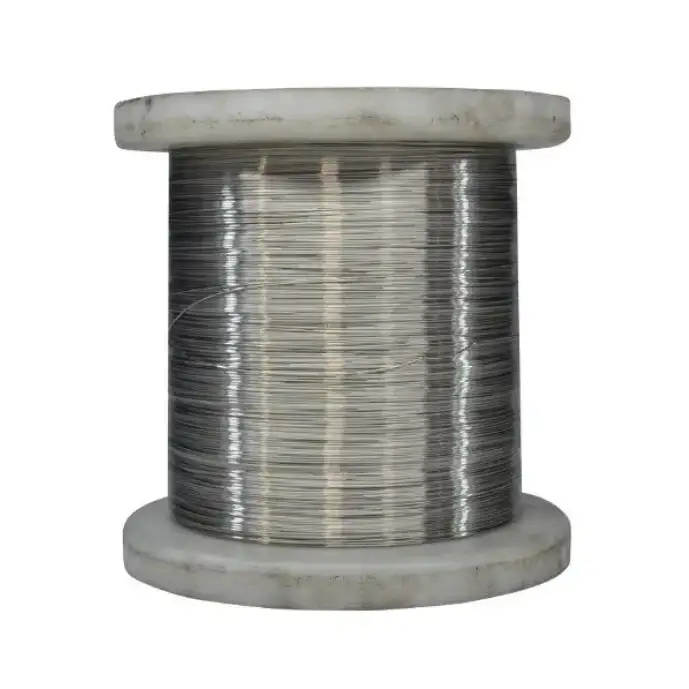Alloy 625, also referred to as Inconel 625, is primarily composed of nickel (58-69%), chromium (20-23%), molybdenum (8-10%), and small amounts of other elements such as iron, niobium, and tantalum. The alloy's unique composition gives it remarkable resistance to corrosion and oxidation, even at elevated temperatures. It has an excellent fatigue and thermal-fatigue strength, making it ideal for demanding applications in harsh environments. Alloy 625 is often used in gas turbines, heat exchangers, nuclear reactors, and marine applications, where both strength and resistance to high temperatures are required.
1. Key Properties of Alloy 625
| Property | Value | Details/Remarks |
|---|---|---|
| Chemical Composition | Nickel (58-69%), Chromium (20-23%), Molybdenum (8-10%), Iron (≤5%), Niobium (3.15-4.15%), Tantalum (≤0.5%) | Ensures superior corrosion resistance, high strength, and thermal stability. |
| Density | 8.44 g/cm³ | Characterizes the alloy's mass per unit volume. |
| Melting Point | 1350°C (2462°F) | High melting point ensures stability in high-temperature environments. |
| Thermal Conductivity | 10.4 W/m·K (at 100°C) | Thermal conductivity is relatively low, aiding in its performance in heat-intensive environments. |
| Coefficient of Thermal Expansion | 12.9 µm/m·K (20-100°C) | A relatively low thermal expansion coefficient. |
| Tensile Strength | 1030 MPa (150 ksi) | Reflects the material's resistance to breaking under tension. |
| Yield Strength | 550 MPa (80 ksi) | Indicates the point at which the alloy starts to deform plastically. |
| Elongation | 45% (in 50 mm gauge length) | Shows the material's ability to stretch before breaking. |
| Hardness | Rockwell B85 | Measures the alloy's resistance to indentation. |
| Corrosion Resistance | Excellent (especially in sulfuric acid, phosphoric acid, seawater) | Superior resistance to various corrosive environments, particularly those involving acids and seawater. |
| Oxidation Resistance | Excellent up to 1800°F (982°C) | Maintains high performance in oxidative conditions. |
| Fatigue Strength | High | Resistant to cyclic loading and stress, making it ideal for dynamic applications. |
| Creep Resistance | High | Performs well under prolonged stress and high temperatures, maintaining dimensional stability. |
| Welding Ability | Excellent | Can be welded using TIG, MIG, and SMAW methods without compromising material properties. |
| Heat Resistance | Excellent up to 1800°F (982°C) | Retains its strength and stability even at extreme temperatures. |
| Pitting and Crevice Resistance | Excellent | Performs well even in environments where localized corrosion can occur (like marine environments). |
| Stress Corrosion Cracking Resistance | Excellent | Resistance to cracking under stress in chloride environments. |
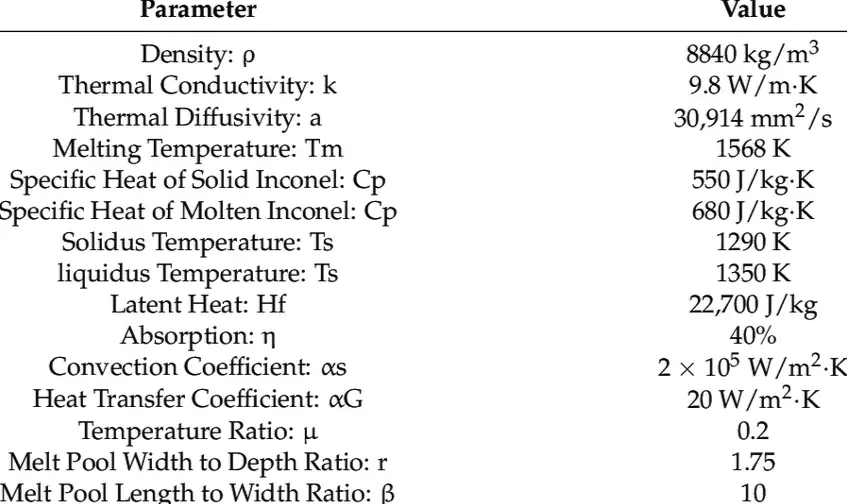
2. Composition of Alloy 625
Alloy 625’s composition consists of several key elements that contribute to its high performance. The chart below shows the typical composition of the alloy:
| Element | Percentage (%) |
|---|---|
| Nickel | 58-69% |
| Chromium | 20-23% |
| Molybdenum | 8-10% |
| Iron | ≤5% |
| Niobium | 3.15-4.15% |
| Tantalum | ≤0.5% |
| Other | <1% |
Each element is carefully balanced to optimize the alloy’s resistance to corrosion and ability to withstand high temperatures, ensuring its suitability for a variety of applications.
3. Nickel Alloy 625 Standards
| Product Type | Standards/Specifications |
|---|---|
| Rod, Bar, Wire, and Forging Stock | ASTM B 446 / ASME SB 446, ASTM B 564 / ASME SB 564, SAE/AMS 5666, SAE/AMS 5837, ISO 9723, ISO 9724, ISO 9725, VdTÜV 499, BS 3076NA21, EN 10095, DIN 17752, ASME Code Case 1935, DIN 17754, DIN 17753 |
| Plate, Sheet, and Strip | ASTM B 443 / ASTM SB 443, SAE/AMS 5599 & 5869 & MAM 5599, ISO 6208, VdTÜV 499, BS 3072NA21, EN 10095, DIN 17750, ASME Code Case 1935 |
| Pipe & Tube | ASTM B 444 / B 829, ASME SB 444 / SB 829, ASTM B704 / B 751, ASME SB 704 / SB 751, ASTM B705 / B 775, ASME SB 705 / SB 775, ISO 6207, SAE/AMS 5581, VdTÜV 499, BS 3074NA21, DIN 17751, ASME Code Case 1935 |
| Fitting | ASTM B 366, ASME SB 366 |
4. Applications of Alloy 625
Aerospace Industry
Alloy 625 is commonly used in the aerospace industry due to its high-temperature resistance and ability to withstand oxidation and corrosion in jet engines and exhaust systems. Components such as turbine blades, seals, and casings benefit from its remarkable properties.
Chemical Processing
In chemical plants, Alloy 625 is employed in heat exchangers, reactors, and piping systems due to its resistance to chemical corrosion. It is commonly used in applications where contact with aggressive chemicals like sulfuric acid, phosphoric acid, and hydrochloric acid occurs.
Marine Industry
Alloy 625’s resistance to seawater corrosion makes it an ideal choice for marine applications such as ship hulls, offshore drilling rigs, and other subsea equipment. The alloy’s ability to resist chloride-induced stress corrosion cracking enhances its reliability in seawater applications.
Power Generation
In power plants, particularly those utilizing nuclear energy, Alloy 625 is used in components like reactor cores, fuel rods, and steam generators, where resistance to high-temperature oxidation and radiation damage is crucial.
global price comparison
| Form | Region / Supplier | Price Range (USD/kg) | Notes / Sources |
|---|---|---|---|
| Plate | Europe (Germany) | 36.9 – 52 /kg | ₹2,700–2,800/kg in India ≈ $37–40/kg |
| China (made‑in‑China, MOQ 500 kg) | 35 – 50 /kg | FOB Chinese suppliers | |
| Jainex Steel Impex (FOB) | 0.80 – 1.65 /kg | $800–1,650/MT | |
| Bar / Rod | UK/Europe (AMS 5666 bar) | ~47 /kg | ₹3,935/kg ≈ $47/kg |
| China (Alibaba rods) | 30.5 – 36.5 /kg | Inconel 625 round bar | |
| Coil | China (DLX Alloy strip/coil) | 20 – 50 /kg | Hot‑rolled coil/strip |
| Wire | Global suppliers | 75 – 135 /kg | Inconel 625 wire pricing |
| Made‑in‑China wires | 20 – 35 /kg | Welding wire, MIG/TIG |
Key Takeaways:
-
Plate prices vary by region: ~$37–52/kg in Europe and India; $35–50/kg in China; as low as $0.80–1.65/kg FOB India/China.
-
Bar/Rod typically retails at $30–47/kg, depending on certification and source.
-
Coil/strip in China is priced at $20–50/kg, depending on spec and MOQ.
-
Wire costs significantly more due to processing—roughly $75–135/kg globally; China-made welding wire is $20–35/kg.
5. Why Choose Alloy 625?
Alloy 625 offers a blend of exceptional qualities that make it the material of choice in critical applications:
-
Corrosion Resistance: Ideal for use in environments prone to corrosion from seawater, acidic solutions, and chemical processes.
-
High-Temperature Strength: Maintains its strength and stability at temperatures as high as 1800°F (982°C).
-
Fatigue and Creep Resistance: Withstands fatigue and high-cycle loads, making it suitable for components in dynamic environments.
Despite its higher cost compared to other alloys, the durability and performance of Alloy 625 often result in lower long-term maintenance and operational costs.
6. Manufacturing & Forming Alloy 625
Alloy 625 can be manufactured using various methods, including:
-
Casting: Producing large parts for industrial use such as valves and pump bodies.
-
Forging: Used for creating rings, shafts, and other high-stress components.
-
Welding: Alloy 625 is often welded using a compatible filler metal, which ensures the preservation of its mechanical properties and corrosion resistance.
Welding Alloy 625 requires careful attention to avoid cracking or oxidation during the process, and is typically performed using TIG or MIG welding techniques.
7. Comparison with Similar Alloys
| Property | Alloy 625 | Inconel 718 | Hastelloy C-276 |
|---|---|---|---|
| Corrosion Resistance | Excellent | Good | Excellent |
| Temperature Resistance | Up to 1800°F (982°C) | Up to 1300°F (704°C) | Up to 2000°F (1093°C) |
| Strength | High | Very High | High |
| Applications | Aerospace, Chemical, Marine, Power | Aerospace, Oil & Gas | Chemical, Marine, Power |
As shown in the comparison table, Alloy 625 offers superior corrosion resistance and high-temperature performance, but is not always the best choice in applications requiring extreme heat resistance (where Hastelloy C-276 excels).
8. Alloy 625 in Welding
Welding Alloy 625 requires specific considerations to maintain its high performance. The alloy can be welded using:
-
Gas Tungsten Arc Welding (GTAW): Preferred for its precision.
-
Gas Metal Arc Welding (GMAW): Suitable for thicker sections.
-
Shielded Metal Arc Welding (SMAW): An alternative when necessary.
Alloy 625 welding rods and filler materials are available for a variety of welding methods, ensuring the structural integrity of welded components.
9. Maintenance and Longevity of Alloy 625
One of the most critical considerations when selecting materials like Alloy 625 for industrial applications is how well it performs over time, particularly under the stresses of temperature extremes, corrosive environments, and mechanical loads. At MWalloys, we understand that the longevity and low-maintenance nature of Alloy 625 are key selling points for our customers.
How Long Does Alloy 625 Last?
Alloy 625 is well known for its long lifespan in challenging environments. Due to its high resistance to oxidation and corrosion, it’s often used in industries where materials are exposed to harsh chemicals, high temperatures, and aggressive mechanical stress. Under normal operating conditions, Alloy 625 can last for decades with minimal maintenance. In applications like chemical reactors, aerospace components, and marine environments, the material’s resistance to corrosion ensures that components made from Alloy 625 maintain their structural integrity over time.
Performance Over Time
Alloy 625 is designed to withstand continuous exposure to extreme conditions without significant degradation. In terms of fatigue resistance, Alloy 625 holds up exceptionally well in environments where repeated loading and unloading occur, such as turbine blades or pressure vessels. However, like all alloys, the material will eventually experience wear and tear over time. Proper maintenance, such as routine inspection for signs of cracking or corrosion, can significantly extend the material's useful life.
Resistance to Fatigue
One of the primary reasons Alloy 625 is favored in high-stress applications is its superior fatigue resistance. The material can handle mechanical stresses, including cyclic loading and high-impact conditions, much better than many other alloys. This makes it a preferred choice for high-pressure piping systems and aerospace components.
Long-Term Performance
For industries requiring materials that can endure for decades without excessive maintenance or replacement, Alloy 625 presents an ideal solution. The material’s ability to resist corrosion, oxidation, and thermal cycling without significant degradation minimizes the need for costly repairs or downtime.
10. Global Supply and Availability of Alloy 625
Alloy 625 is widely available globally, but the supply chain and availability can vary depending on geographic location, local demand, and market conditions. At MWalloys, we have a robust global supply chain that ensures timely delivery of high-quality Alloy 625 to customers around the world.
Where is Alloy 625 Sourced?
Alloy 625 is produced in several countries, with the largest production facilities located in the United States, Europe, and parts of Asia. The material is manufactured by multiple suppliers and certified by various international standards, ensuring that customers receive the highest-quality product regardless of location.
Regional Availability
While Alloy 625 is readily available in major industrial regions such as North America, Europe, and Asia, some remote areas may face delays due to shipping or customs procedures. MWalloys has established a global logistics network, allowing us to offer quick shipping to virtually any location in the world. Additionally, we maintain a large stock of Alloy 625 in various forms, including plates, bars, pipes, and tubes, ensuring that our clients never face extended delays in fulfilling their orders.
Stock Availability
At MWalloys, we maintain a comprehensive inventory of Alloy 625, ensuring that customers have immediate access to the material in various forms, sizes, and grades. Our commitment to maintaining a large stock helps minimize delivery lead times and allows us to offer quick responses to urgent customer requests.
Supply Chain Considerations
While the global demand for high-performance materials like Alloy 625 has increased in recent years, supply chain disruptions, such as raw material shortages or transportation bottlenecks, can occasionally affect availability. However, due to our partnerships with top suppliers and our extensive global distribution channels, MWalloys remains a reliable source for customers seeking Alloy 625.
11. Regulations & Standards for Alloy 625
Alloy 625 meets various international standards and regulations, ensuring that it is suitable for a wide range of industries that demand high levels of quality and performance. Compliance with recognized standards also helps ensure that Alloy 625 performs as expected in demanding environments.
Compliance with Industry Standards
Alloy 625 is subject to various ASTM and ISO standards, which regulate its production, testing, and performance characteristics. These standards are crucial for industries such as aerospace, chemical processing, and power generation, where precise material specifications are vital for safety and reliability.
Some of the key standards Alloy 625 meets include:
-
ASTM B443: Standard Specification for Nickel-Chromium-Molybdenum Alloy Plate, Sheet, and Strip for Gas Turbine Engine Exhaust Systems
-
ASTM B444: Standard Specification for Nickel-Chromium-Molybdenum Alloy Seamless Pipe and Tube
-
ISO 9001: Quality Management Systems (for consistent production and supply chain processes)
These certifications ensure that Alloy 625 is produced according to the highest standards, ensuring material consistency, performance, and reliability for critical applications.
Certifications
For customers requiring certified materials, MWalloys offers Alloy 625 with full certification documentation, including certificates of compliance and test reports. These documents confirm that the material meets all required standards, including chemical composition, mechanical properties, and performance tests.
Regulatory Considerations
Depending on the region and application, Alloy 625 may be subject to additional local regulations. For example, materials used in the nuclear power industry often need to meet stringent regulatory requirements set by organizations like the Nuclear Regulatory Commission (NRC) in the U.S. or International Atomic Energy Agency (IAEA) standards.
12. Alloy 625 Pricing
Pricing for Alloy 625 is influenced by several factors, including global supply and demand, raw material costs, and manufacturing complexities. At MWalloys, we aim to provide competitive pricing for Alloy 625 while ensuring the highest quality product.
Cost Factors
The cost of Alloy 625 can vary significantly based on:
-
Material Form: Prices for plates, pipes, bars, and tubes may differ.
-
Grade: Higher-grade alloys with specific chemical compositions or certifications often come at a premium.
-
Market Demand: Global demand for Alloy 625 can affect pricing, particularly in industries such as aerospace and chemical processing, where the material is in high demand.
Price Comparison
While Alloy 625 tends to be more expensive than many other materials, such as stainless steel or carbon steel, its durability and performance in extreme conditions often justify the higher initial cost. Over time, the extended lifespan and reduced maintenance costs associated with Alloy 625 can result in overall cost savings, making it a cost-effective choice in demanding applications.
At MWalloys, we work directly with manufacturers to ensure that we can provide competitive pricing without compromising on quality. Our pricing strategy ensures that our customers receive the best value for their investment in Alloy 625.
13. Sustainability and Recycling of Alloy 625
In today's industrial world, sustainability is a growing concern. At MWalloys, we understand the importance of sustainable practices, and we aim to provide environmentally responsible materials. Alloy 625 is fully recyclable, which makes it a sustainable choice for industries looking to reduce their environmental impact.
Recycling Alloy 625
One of the major benefits of Alloy 625 is its recyclability. The alloy can be processed and reused in various forms without losing its desirable properties, such as corrosion resistance and high-temperature performance. This makes it an excellent option for industries focused on reducing waste and promoting a circular economy.
Sustainable Manufacturing Practices
At MWalloys, we collaborate with suppliers who prioritize sustainability in their manufacturing processes. We strive to minimize waste and energy consumption in our production processes and encourage the use of recycled materials in the creation of Alloy 625 products.
By choosing Alloy 625, industries not only gain access to a high-performance material but also contribute to sustainable practices in material manufacturing and usage.
14. FAQs about Alloy 625
-
What industries use Alloy 625?
Alloy 625 is used in aerospace, chemical processing, marine, power generation, and nuclear industries due to its high temperature and corrosion resistance. -
What are the advantages of using Alloy 625 over other alloys?
Alloy 625 offers superior corrosion resistance, high-temperature stability, and excellent fatigue resistance, making it ideal for critical applications. -
Can Alloy 625 be welded easily?
Yes, Alloy 625 is highly weldable, especially when using appropriate filler materials like Nickel 625 welding rods. -
Is Alloy 625 more expensive than other alloys?
Yes, Alloy 625 is typically more expensive than other alloys, but its durability and long-term performance can result in cost savings over time. -
What are the most common grades of Alloy 625?
The most common grades are Inconel 625, Monel 625, and Hastelloy 625, each used in different applications based on their unique properties.
Conclusion
In conclusion, Alloy 625 is a versatile and durable material, known for its superior resistance to corrosion and high-temperature performance. Whether you're in aerospace, marine, chemical processing, or energy sectors, Alloy 625 offers unmatched reliability and strength in harsh environments. Its wide range of applications, long lifespan, and minimal maintenance make it a top choice for demanding industrial use.
At MWalloys, we are committed to providing high-quality Alloy 625 products at competitive prices, backed by our 24-hour free quote service. We also ensure that our customers receive timely deliveries and expert advice on the best material choices for their specific needs.

